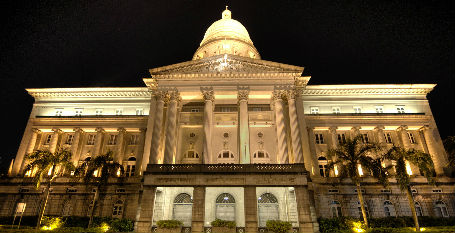A two-day hearing before a three-judge panel began July 14 as lawyers for Kenneth Chee and Gary Lim argued that the ban, first adopted under British colonial rule in 1938, discriminates against gay men and violates rights to equal protection guaranteed by Singapore’s constitution, according to a Bloomberg report that appeared in malaysiandigest.com.
Singapore lawmakers in 2007 agreed to keep the law, known as Section 377A but the government says it hasn’t actively enforced since the mid-1990s.
“The majority of the population still favors the current legal framework,” Law Minister K. Shanmugam reportedly told Bloomberg News.
Gay activists had already begun an online petition for abolition last year ever since a lower court ruled on the law’s constitutionality.
Singapore Judges hearing the arguments on behalf of graphic designers Chee, 38, and Lim, 46, a couple for the past 17 years as well as a parallel appeal by another man, Tan Eng Hong, against the ban.
Deborah Barker, the couple’s Singapore lawyer told the court today that it should either be declared void or modified to exclude acts between consenting adults in private.
Barker said that her clients were not seeking to change the Constitution but only to “enforce” it.
“This Court is only invited to find that the majority cannot impose its views (disguised as public morality) through democratic process to target an unpopular minority group by restricting their intimate conduct in private, which is legal for everyone else on the ground that the majority disapproves of such harmless conduct.”
The couple had contended that Section 377A discriminates on the basis of sexual orientation, which violates Article 12 of the Constitution that states “all persons are equal before the law and entitled to the equal protection of the law.” Their challenge had been dismissed by the court in April last year.
There were a total of 185 people convicted under section 377A between1997-2006, according to the Home Affairs Ministry. Seven people were convicted in 2006, with 1999 having the highest at 31 between that ten year period.
Singapore courts are notorious in throwing out anti-gay discrimination lawsuits always citing the Section 377A law and claiming that the judiciary shouldn’t override parliament as it is for parliament to change and make laws and the judiciary to interpret it.
Under Section 377A, any male person who, in public or private, commits, abets, procures or attempts to procure any act of gross indecency with another male person, shall be punished with imprisonment for a term which may extend to two years.

